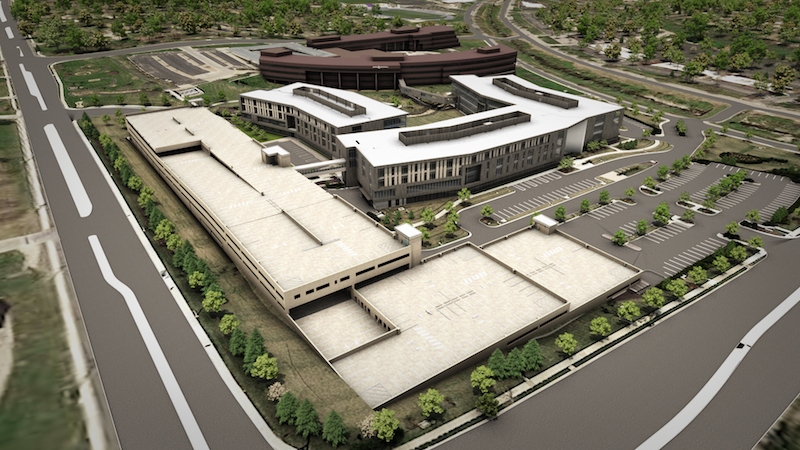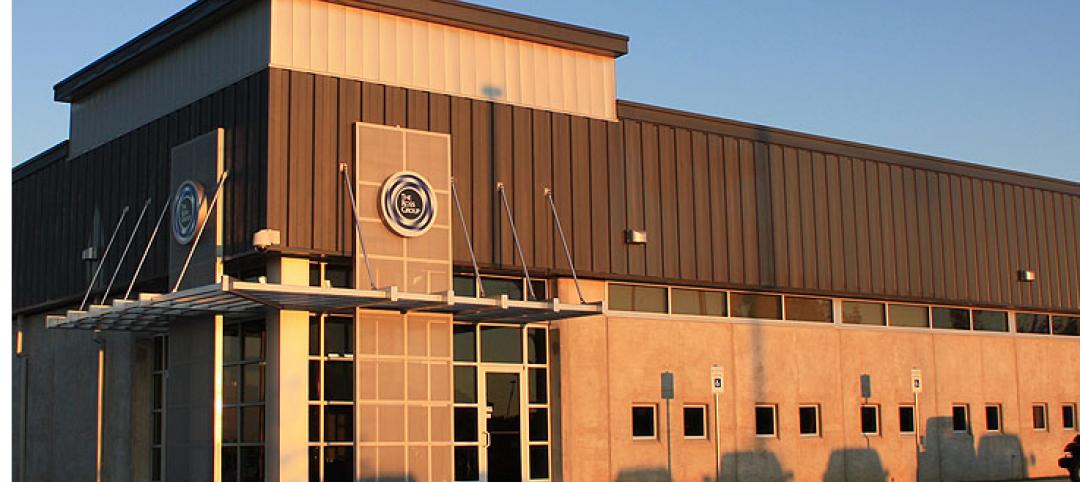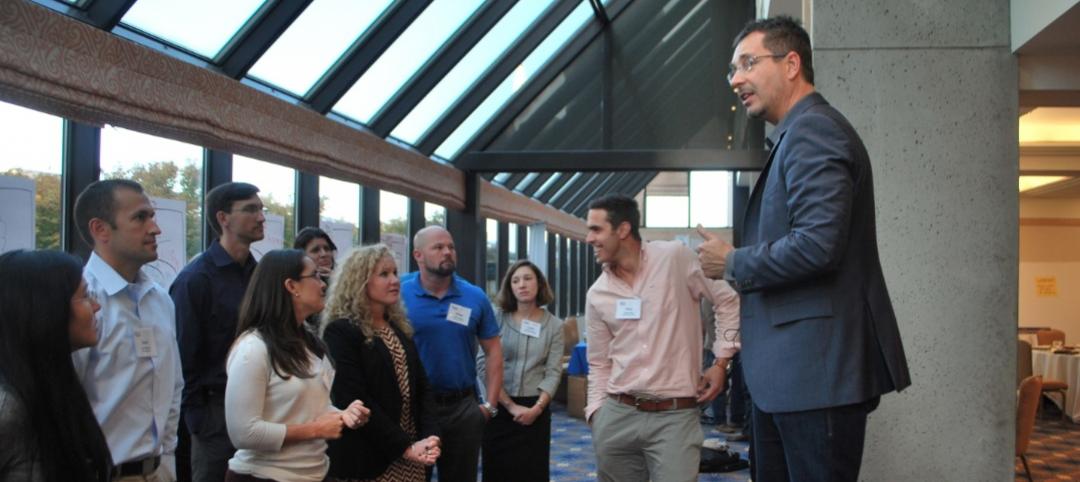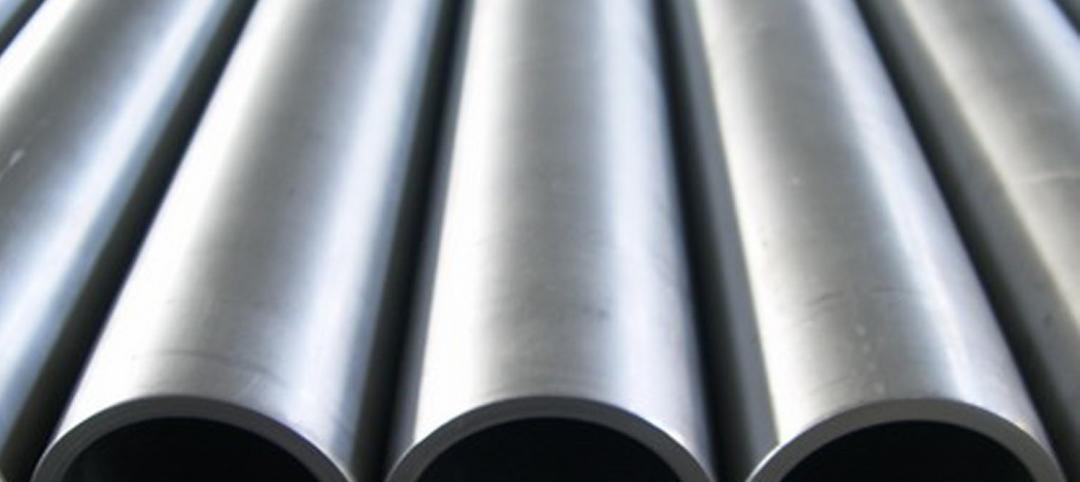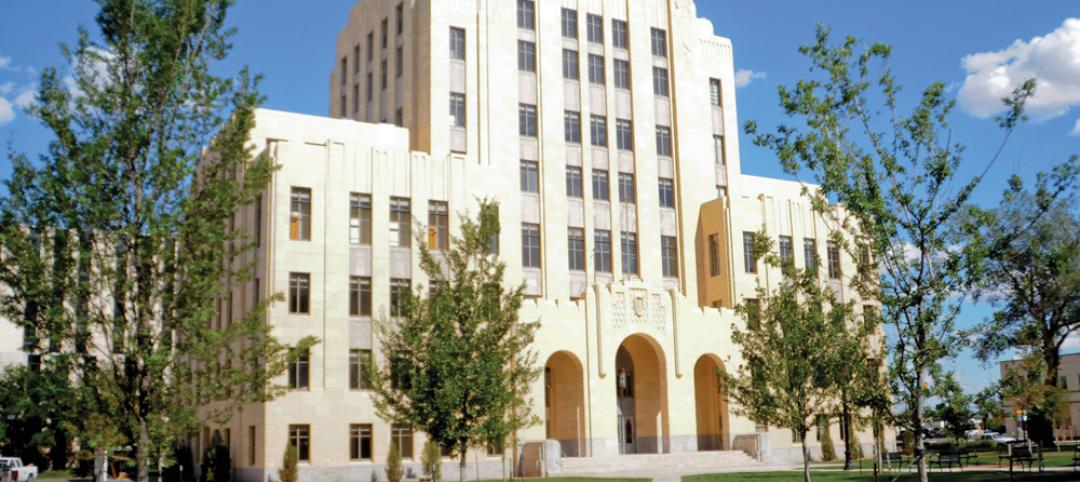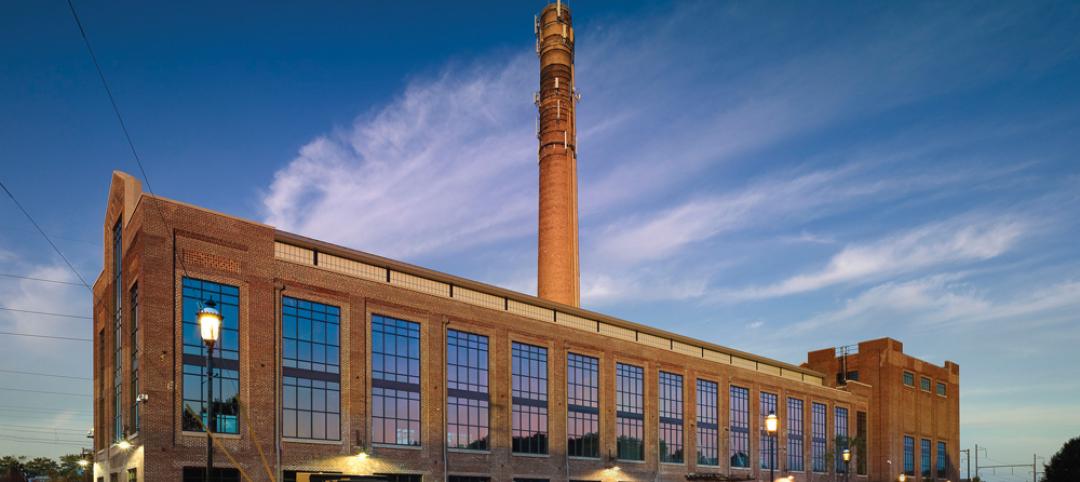Burns & McDonnell, which ranked third among Engineering/Architecture firms on BD+C’s 2018 Giants list, is launching an ambitious growth campaign that includes hiring at least 1,000 employees annually “for the foreseeable future,” and increasing the size of its World Headquarters in Kansas City, Mo., by 22%.
By year’s end, Burns & McDonnell expects to have 6,650 employees, more than half of whom will be working outside of Kansas City. The company has 11 regional offices in North America, and seven offices scattered across Europe, Africa, Asia, and the Middle East.
A 142,000-sf addition to its headquarters, which the firm is designing and building, is scheduled for completion by the summer of 2020. The company’s existing four-story 310,000-sf headquarters building opened in 2016 on a 34-acre campus in South Kansas City.
The $42 million new construction project is expected to commence in a week or two, beginning with a 550-slot parking garage, according to Brittany Swartz, a project manager in the firm’s Commercial Architecture group. The headquarters expansion will include 42 conference rooms, two large training rooms, and 780 work spaces.
Burns & McDonnell reported nearly $3 billion in revenue generated in 2017, of which $290.2 million derived from services provided for nonresidential building in several sectors that include commercial, retail, institutional, aviation, military, and manufacturing.
The firm is expanding to provide “full service solutions” for project owners that are seeking greater scheduling and budgeting certainty. Ray Kowalik, a 31-year company veteran who was named its CEO and chairman last year, adds that Burns & McDonnell had been growing and a 10-12% annual clip, which he believes can be boosted to 15%.
He cites four trends that are driving growth:
•A robust economy, favorable corporate tax law changes, and low energy prices, all of which are spurring investments in the U.S., especially in the chemicals market which is one of the firm’s largest sectors;
•The shift toward natural gas and renewable energy production that’s creating opportunities in the transmission, distribution, and generation markets;
•Greater government investment in resilience to secure and modernize aging facilities; and
•Mushrooming airport passenger traffic, and the need to find new ways to alleviate congestion at domestic and foreign terminals.
Burns & McDonnell shouldn’t have too much trouble meeting its hiring goals: it receives about 80,000 resumes per year, and the company has already hired 1,000 people in 2018, as of today’s announcement. It expects its hiring number to top out at 1,400 this year. “We’re a company that a lot of people want to work for,” says Kowalik. (In prior years, the company would typically offer employment to between 300 and 400 people, with 90% of applicants accepting.)
Kowalik says Burns & McDonnell already has a pretty good system in place for assimilating new hires, which includes extensive training and mentoring. (He said the company’s attrition rate is about 5% annually.)
While the power, gas, oil, and chemicals sectors are among the markets driving growth, Kowalik says his company is also expanding its nonresidential building activities, notably in the areas of office and multitenant apartment construction. “We’re extremely busy in Kansas City,” he says, having recently completed a new office building there for Creative Planning, a local wealth-management firm.
Kowalik adds that new tax policy is sparking “multibillion-dollar projects” in the chemicals industry, which are likely to trigger new commercial construction that supports that business. He expects a similar “trickle down” effect from oil and gas.
Historically, Burns & McDonnell has grown organically, “one employee at a time,” says Kowalik. But in recent years it has bolstered its presence on the construction side with acquisitions of two contractors, AZCO Inc. in Wisconsin and Ref-Chem in Texas.
Kowalik says that it’s possible that his company might seek out joint-venture construction partners. But he hedged about future acquisitions. “The minute I say ‘we’re interested,’ we get 20 calls.”
He is concerned, though, about the skilled-labor shortage, and thinks the AEC industry needs to take a more active role in outreach and training.
Related Stories
| Oct 25, 2013
Hoffmann Architects announces launch of U.S. Capitol Dome restoration
The Architect of the Capitol will undertake comprehensive restoration of the 150-year-old cast iron Dome, which has not undergone a complete restoration since 1959-1960.
| Oct 23, 2013
Gehry, Foster join Battersea Power Station redevelopment
Norman Foster and Frank Gehry have been selected to design a retail section within the £8 billion redevelopment of Battersea Power Station in London.
| Oct 23, 2013
Some lesser-known benefits of metal buildings
While the durability of metal as a construction material is widely recognized, some of its other advantages are less commonly acknowledged and appreciated.
| Oct 18, 2013
Meet the winners of BD+C's $5,000 Vision U40 Competition
Fifteen teams competed last week in the first annual Vision U40 Competition at BD+C's Under 40 Leadership Summit in San Francisco. Here are the five winning teams, including the $3,000 grand prize honorees.
| Oct 18, 2013
A picture’s worth a thousand words… if you can find it
Photographs are becoming more essential to project communication and documentation. Recently, I sat in a local airport integration project meeting in which the owner outlined their expectation for construction documentation. One of the first requirements was to provide photographs throughout the building process.
| Oct 18, 2013
Researchers discover tension-fusing properties of metal
When a group of MIT researchers recently discovered that stress can cause metal alloy to fuse rather than break apart, they assumed it must be a mistake. It wasn't. The surprising finding could lead to self-healing materials that repair early damage before it has a chance to spread.
| Oct 16, 2013
5 secrets of successful entrepreneurs
If you’re on the outside looking in, successful entrepreneurship may seem mysterious. But it isn’t. Here are five patterns of behavior that are common to successful entrepreneurs.
| Oct 15, 2013
High-rise Art Deco courthouse gets a makeover in Amarillo, Texas
Recognized as one of the most significant Art Deco courthouses in Texas, the Potter County Courthouse is modernized and restored to its 1930s aesthetic.
| Oct 10, 2013
Behind the scenes at the U40 Summit: See the $5,000 U40 Vision competition in progress [slideshow]
Sixty-five up-and-coming AEC leaders are battling for $5,000 in prizes today at BD+C's Under 40 Leadership Summit in San Francisco.
| Oct 9, 2013
From power plant to office: Ambler Boiler House conversion
The shell of a 19th-century industrial plant is converted into three levels of modern office space.


